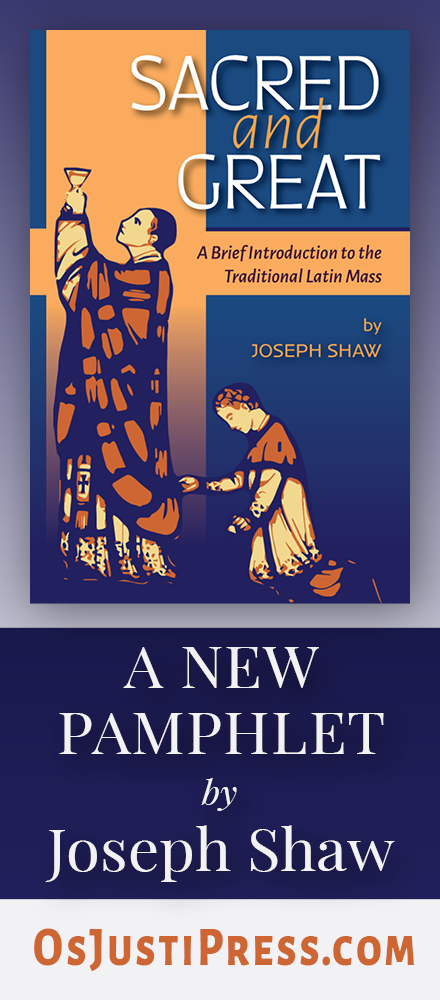Father Tim Finigan provides us with a report on the Autumn colloquium of the British province of the Confraternity of Catholic Clergy which took place from October 23-24 at the Reading Oratory School and which saw Archbishop Augustine Di Noia, Msgr. Keith Newton and Fr. Uwe Michael Lang speak -- amongst others. Here are a few excerpts: [NLM emphases]
The Colloquium of the British Province of the Confraternity of Catholic Clergy was a great success...
Fr Michael Lang spoke in the evening on the subject of “Fifty years after Sacrosanctum Concilium, Towards a New Liturgical Movement.” As we have come to expect from such a scholar, his lecture was informative, amusing, and encouraging. I look forward to reviewing it again when it is published in due course.
I think it is fair to say that we all look forward to reading that particular paper by Fr. Lang.
Father Finigan continues further on in his report:
The Ordinariate were well represented at the Colloquium, as well as many old friends. I was delighted to see Bishop Geoffrey Jarrett who happened providentially to be in England at the right time. Bishop Jarrett has been a sterling supporter of the Australian CCC and it was good to hear from him about developments there.
The last talk of the Colloquium was from Fr Andrew Pinsent on Science, Grace and Catholic Enlightenment, raising matters for discussion on these questions.
The Liturgy at the Colloquium was very much part of the reform of the reform. The Masses were celebrated in the Novus Ordo with the ordinary and propers in Latin and the rest of the texts in English. Priests either concelebrated or attending in choro, some having celebrated private Masses earlier in the morning. After my own 7am Mass, I made my thanksgiving by serving Fr Hunwicke’s Low Mass. As a priest I enjoy serving for other priest’s Masses – it is a way of reminding oneself of the real meaning of participation at Mass – something that the priest needs to be aware of himself.
Read his entire report on his blog.
Fr. Finigan also provides us with some photos.
























